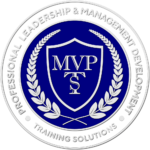“You can’t go back and change your beginning, so just start where you are and change the ending” (Colin Weng).
Colin Weng’s poignant quote, “You can’t go back and change your beginning, so just start where you are and change the ending,” encapsulates a profound perspective on personal growth and resilience. It underscores the inevitability of past experiences and decisions but encourages a forward-looking mindset. By acknowledging the inability to alter the past, the quote invites individuals to focus on the present moment as the starting point for positive change.
The quote also emphasizes the power of agency in shaping one’s destiny. Rather than moping over past transgressions or lost chances, it urges individuals to take control of their current circumstances and make intentional choices that lead to a different outcome. This resonates with the idea that every moment is an opportunity for a fresh start, irrespective of the past. By embracing this mindset, individuals can harness their resilience and determination to redirect their lives toward a more fulfilling and positive trajectory.
In essence, Colin Weng’s quote serves as a motivational reminder that personal transformation is an ongoing process, and the power to shape a brighter future lies in today’s choices. It encourages individuals to release the burden of regret, take responsibility for their present actions, and chart a course toward a more favorable ending. Ultimately, the quote champions the idea that no matter where one starts, the ability to create a positive and fulfilling conclusion is always within reach.
Colin Weng’s quote carries timeless wisdom that transcends personal development. Beyond the individual level, this quote resonates with broader themes of acceptance and adaptation in the face of life’s inherent uncertainties. It serves as a reminder that external circumstances, no matter how challenging, need not dictate the ultimate trajectory of one’s journey. By acknowledging the constraints of the past and embracing the possibilities of the present, individuals and communities alike can cultivate resilience and forge new paths forward.
Furthermore, Weng’s words also find relevance in the collective efforts toward societal progress. Nations and societies grapple with historical legacies, and this quote encourages a forward-looking approach to address persistent issues. It suggests that acknowledging past mistakes and injustices is vital. However, the real catalyst for positive change lies in the collective resolve to alter the future. Whether it be social, political, or environmental challenges, the quote implores a proactive stance in rewriting the narrative for the betterment of all. In this broader context, the quote becomes a rallying call for shared responsibility and a shared commitment to shaping a more equitable and harmonious future.
In conclusion, Colin Weng’s quote encapsulates a philosophy of empowerment, encouraging individuals to transcend the limitations of their past and actively shape a more desirable future. Its applicability extends beyond personal development to encompass societal progress, urging both individuals and communities to embrace change and resilience. In a world where the only constant is change, the quote becomes a guiding principle for forging ahead with optimism, determination, and a collective commitment to rewriting the ending on a personal and societal level.
MVPTS STAFF
